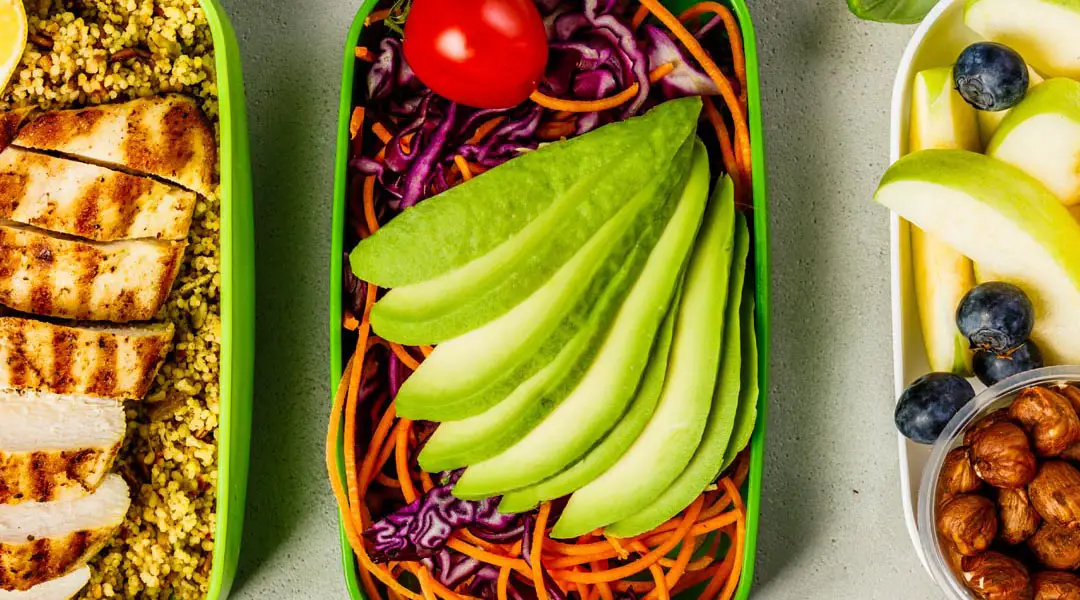While intermittent fasting is an easy enough lifestyle for me, I always wanted to try doing a ketogenic diet. After following a keto diet for a week, I realized how hard it was. So, I was wondering if it was possible to follow a ketogenic or low-carb diet every other day, only a few days a week for example?
Doing a ketogenic diet every other day will not work for weight loss. You either are in ketosis or not. A keto diet means good fat, some proteins, and very few carbohydrates with every meal. Following the diet occasionally will be hard and won’t give you any of the benefits (weight loss, energy, focus, etc.) you could get from the diet.
What exactly happens to your body when you do keto every other day? Isn’t there some lessons we can learn from keto and implement a few days a week? Let’s take a deeper look.
What happens to your body on every other day keto
To illustrate my point, let’s imagine a regular week, starting with 4 days of ketogenic diet from Monday to Thursday. What happens to your body during that time and how the way you eat impact fat storage and weight loss?
So, you’ll be eating high fat, moderate protein and very low carb meals, 3 times a day. For example eggs, bacon, salmon and avocado in the morning, cauliflower and chicken gratin, with cheese and cream, for lunch and salmon tandoori with cucumber cream for dinner.

On a side note, writing this while fasting is making me hungry as hell, it looks delicious!
You follow general guidelines: stay hydrated since your body will get rid of a lot of water during the first days, get enough salt and complement with chicken or vegetable broth if needed (to avoid side effects like headaches, dizziness, etc.) and eat more fat if you’re hungry between meals.
During all this time, your body will try and adapt to ketosis. If you do strict keto, you won’t be giving enough glucose to your body to run on. So, what’ll your body do? Turn to your fat stores. And when your body breaks down fat for energy, it produces ketone bodies, which are some sort of glucose.
Only ketones are better glucose, “healthier” glucose produced by your body alone. Just so you know, your body doesn’t need a single gram of glucose from food or drink to work normally, your liver is perfectly able to produce glucose for you. It first uses stored glucose from what you ate, then taps into amino acids, waste products and fat by-products in a process called gluconeogenesis.
Since you’re not getting enough glucose to run on them, your liver will do the heavy work. Only it is not used to this and turning your body from a regular source of energy (glucose from food and drink) to ketosis will come with a lot of side effects.
I already mentioned some of that in my article about getting hypoglycemia when fasting, check it out.
The many side effects of the keto diet are called keto flu. They include:
- Headache
- Irritability
- Lightheadedness
- Brain fog
- Dizziness
- Vomiting
- Stomachache
- Etc.
Yeah, that really makes you want to try keto right? But once your body is in full ketosis, those side effects will disappear, and you’ll be getting the good side effects of keto:
- More energy
- Deep focus
- Reducing insulin sensitivity
- Lower blood sugar
- Weight loss, duh
- Other benefits on certain conditions (diabetes, epilepsy, cancer, Alzheimer, etc.)
Only keto flu can take some time to settle. Normally, it takes at least 3 to 4 days. So, let’s say you’re doing keto during weekdays as I mentioned earlier. What’ll happen is that you’ll spend a shitty week, full of terrible side effects, only to give up when your body is starting to adapt.
In the first days, you will experience some weight loss, but most of it will actually be water. On a low-carbohydrate diet, the glycogen stores are depleted. Those are glucose stored in your liver. Every gram of glycogen holds around 3 grams of water. When you lose glycogen, you mostly lose water. So, 4 to 5 days keto won’t really break down a lot of fat.
Now, what happens when you start eating carbs again on the fifth day then? You had a miserable week, lost a lot of water, now what?
Well first off, your body will kick out of ketosis (if you even reached true ketosis by that point), what will most likely happen is that you’ll feel better if you’re still experiencing keto flu that’ll cure you in an instant. Just don’t start off with alcohol and don’t carb load! This could be a strain on your body and cause stomachache and constipation.

Then when you’ll have glucose again, your liver will produce insulin. Hello there, I haven’t seen you for a few days, my friends! The hormone will start by using some of the glucose for energy, some will be stored in the liver as glycogen for later use and some will be turned into fat stores. Depending on how much and what you ate of course.
During a keto diet, your body makes other changes such as altering some hormones, increasing enzyme production, all that to optimize fat burning as fuel. When not maintaining ketosis, you’re not elevating the fat-burning benefits of it.
You could also experience blood sugar fluctuation. Keto diet is a great way to lower and stabilize blood sugar, when eating carbs again you could experience high blood sugar first, then crash depending on your condition (if you have type 2 diabetes for example).
It’s also said that this could have a harmful impact on your blood vessels if you suddenly blast them with glucose. Especially for people with type 2 diabetes or with high risks of cardiovascular disease.
I also read that the high fat you had on previous meals could actually be processed by the newly produced insulin from your non-keto meal. Fat could stay up to 24h in your stomach and be processed later.
Basically, to conclude on the subject: cheat days or every other day keto is not doable and actually quite a bad idea.
But is there another way to do it?
Cyclical ketogenic diet
If you’re into keto you certainly already heard about the cyclical ketogenic diet. It is exactly what it implies: 5 to 6 days of the keto diet and 1 to 2 days of eating carbs.
During the 5 to 6 days you’ll be getting around 75% of your calories from fat, with no more than 50 grams of carbohydrates per day, while proteins should account for 10 to 15% of your diet.
For 1 to 2 days a week, you increase carb consumption. Carbohydrates should account for 60 to 70% of your total calorie intake, protein should be around 15 to 20% and fat 5 to 10%.
The goal of this is to replenish your glycogen stores by increasing carbs for shorts periods of time. This diet is mostly used by athletes for muscle gain and better performance. It may even reduce keto side effects during the week and make sticking with keto diet easier.
But while it may be less restrictive than keto, for cyclical keto diet to work as expected you should stick to quality carbohydrates such as:
- Brown rice
- Quinoa
- Beans
- Lentils
- Oats
- Sweet potatoes
These are high vitamins, fiber, and mineral-dense and they should help you stabilize your blood sugar. You should stick to food and drinks rich in nutrients and avoid anything with sugar.
So, you may not be following a strict keto diet, but the non-keto days are still pretty restrictive. You cannot exactly indulge in an ordinary weekend on this type of diet. Even though you do get carbs, you still have to measure and manage what you eat and drink
Those 1 to 2 days don’t really register as “cheat days”, not as we envision them in a traditional diet anyway.
Can generally reducing carbs help lose weight
Okay, you don’t want to do a traditional keto or even cyclical keto diet, too restrictive. But could reduce carbs on an everyday basis help with weight loss?
I’m an intermittent faster, have been for more than two years now, and in the last 6 months, I started cutting out on carbs during the week. Even on weekends when we stay at home.
Moreover, cutting heavily on processed carbohydrates like pasta and bread. We sometimes eat potatoes, rice, lentils or beans, but most of the time we’re fine without any of this.
My girlfriend, with intermittent fasting and far fewer carbohydrates during the week, lost more than 20 pounds in 6 months. Without cutting back on night outs and dinner with friends. I should add she also did two 5 to 6 days fast during this period.
More than losing weight, what I saw happening when cutting some of the carbs in my diet is a more relaxed digestive system. Fasting helps a lot of course, but I’ve been fasting for a year and a half when I started reducing carbs.
And I can really see the difference! Maybe I’m experiencing a bit of intolerance to gluten too, that could account for it, but I feel way better on a daily basis, less bloated, less prone to diarrhea, just by reducing those.
Related questions
When does keto flu hit and for how long? It really depends on people, but mostly between the first 24 to 48 hours of following the diet. It can reduce around the 5th day (even disappear), but some people reported feeling keto flu for up to two weeks.
How long does it take to get into ketosis? Keto flu comes with ketosis and, again, it depends on the person, your condition, your regular diet, etc. But it can take from 1 to 10 days to get into ketosis.
Couldn’t you replace fat with proteins on keto? We’re not used to eating that much fat (around 70% of your total calorie intake) on a daily basis and it can reveal hard to do if you’re not used to it. But resist the urge to reduce fat and eat more proteins instead. More proteins will actually produce an insulin response, which will get you out of ketosis.

